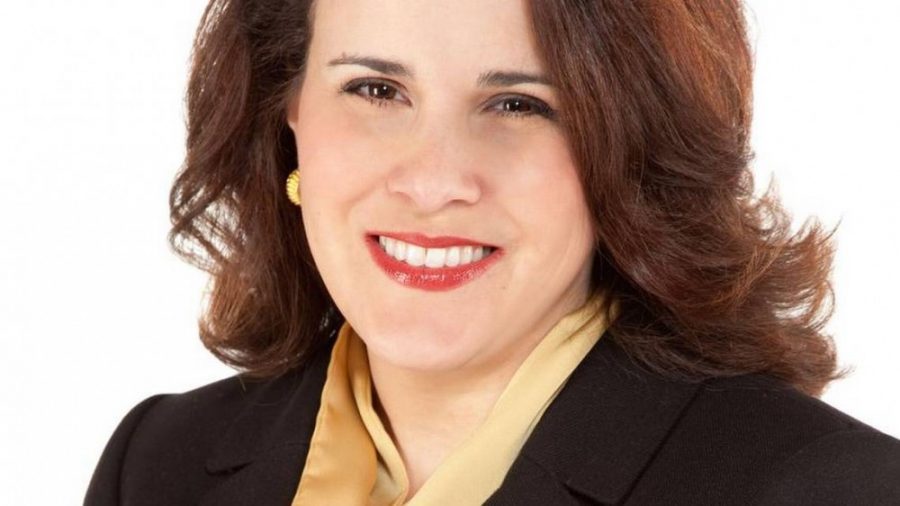The University of Minnesota Board of Regents selected a lone finalist in the search for the next president: Joan Gabel, who could become the first female president of the University.
Gabel, the provost at the University of South Carolina, was selected by all but one regent in a back-and-forth special meeting Wednesday afternoon. Regent Darrin Rosha was the only dissenter.
Several regents said Gabel was the strongest of the three front-runners recommended to the board by the Presidential Search Advisory Committee.
“I’m looking for a visionary leader. Someone who can inspire people. Who can bring a vision for this University to take us to the next level,” said Regent Chair David McMillan at a press conference after the meeting. “I believe that the candidate we’re bringing to Minnesota next week has all those aspirations.”
Gabel will visit system campuses for public forums next week. The full board will interview her at its December meeting next Thursday and Friday, with a special meeting the following week to vote on her confirmation.
McMillan said the next president could be named before Christmas.
Regent Abdul Omari, chair of the presidential search committee, said Gabel stood out for her ability to connect with people.
“First and foremost, we’re looking for a certain energy, and she had a high level of energy,” he said. “It was an easy decision to name her a finalist.”
All the three of the candidates had “extensive experience” in higher education, said Regent Steve Sviggum at the meeting. However, Gabel emerged as the front-runner early in the meeting.
“[She’s] someone who can command a room, but also someone who can easily connect and engage with a wide range of constituencies,” Sviggum said. “I can especially see this individual become passionate and a great advocate for the University at the legislature.”
Gabel was the only front-runner willing to be publicly named with other finalists. The other two front-runners were unwilling to be publicly named unless they were selected as the sole finalist. That decision ended up hurting their chances with regents.
Regent Thomas Anderson said Gabel’s willingness to go public showed a lot about her strength as a candidate.
“If we don’t pick somebody who has confidence I think we’re in the wrong boat,” Anderson said.
Regents did not identify front-runners, referring to them as “Candidate A,” “Candidate B” and “Candidate C” throughout the meeting. But multiple regents referred to “Candidate A” as a woman.
“Well, she is a she,” Hsu said in response to other regents asking him to de-identify “Candidate A’s” gender, who was later identified as Gabel.
“While I would have loved to have seen a handful of people willing to go public, the search committee delivered to us an extremely talented and broadly supported group of people. Unfortunately only … one of them would take that risk,” McMillan said.
Under Minnesota public data laws, candidates’ identities are not public until they are named finalists by the board.
McMillan said there was a “delicate balance” between adhering to public data and open meeting laws while protecting confidentiality of candidates.
Several regents said the state’s public data and open meeting laws prevented them from carrying out the search effectively.
“We need a conversation about this [law],” Regent Richard Beeson said. “Because, really, it doesn’t work.”
Rosha, who voted against naming a finalist, proposed naming another candidate not recommended by the search committee. That effort was voted down by the board.
At one point, McMillan said the board could vote to start the search process over. But in the end, the regents chose to move forward with a single finalist, a decision Rosha expressed qualms over.
“I have very strong concerns about a process where the board should be conducting public interviews of finalists,” Rosha said in an interview with the Minnesota Daily. “We cannot delegate that away.”
Although he called Gabel a “remarkable candidate,” Rosha said the process went against the spirit of public data and open meeting laws.
“To the extent that the open meeting law provides that the public can participate and review and respond to open interviews of the top candidates for a position,” he said. “I don’t think that having a sole candidate meets the spirit of the public being able to participate.”
This is not the first time the board has only named one finalist. The last two presidential searches ended with only one person publicly named.
While Gabel doesn’t have ties to Minnesota, regents said she is knowledgeable about the state and excited to come here.
“When you talk to someone you can tell if they want to be a president and … want to be the president of the University of Minnesota,” Omari said. “And Joan Gabel wants to be the president of the University of Minnesota.”








